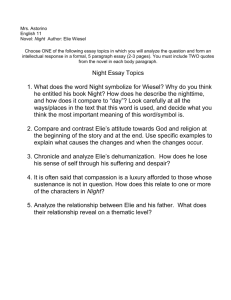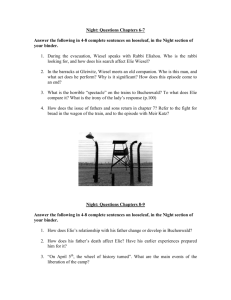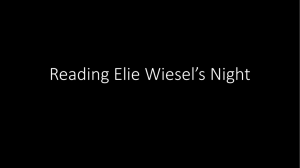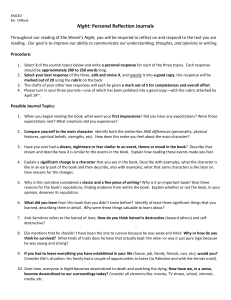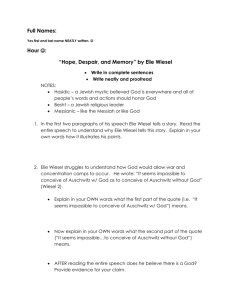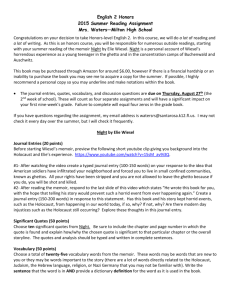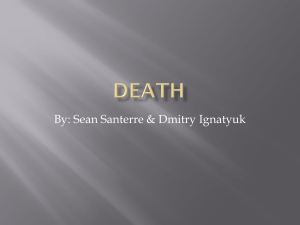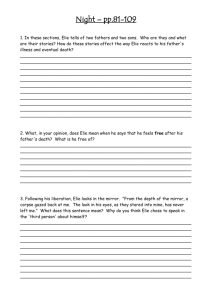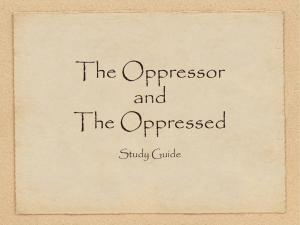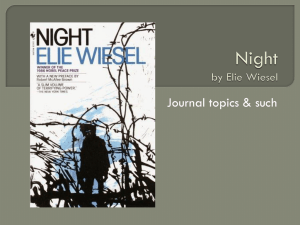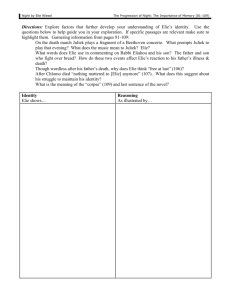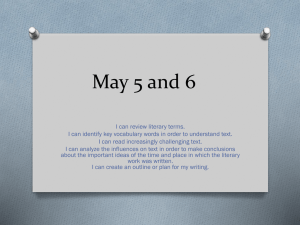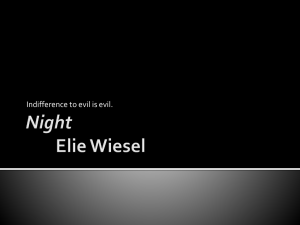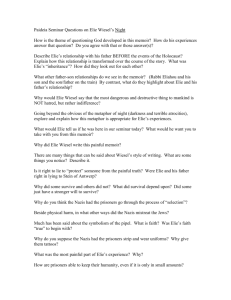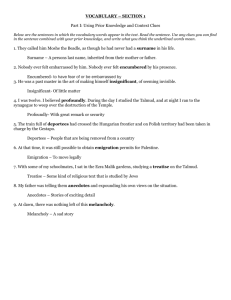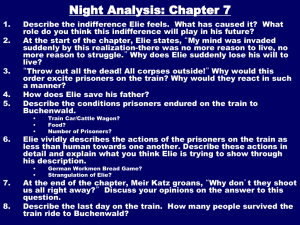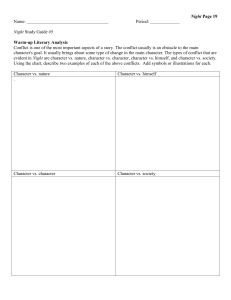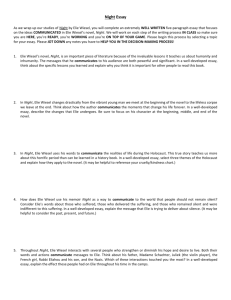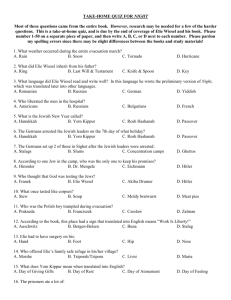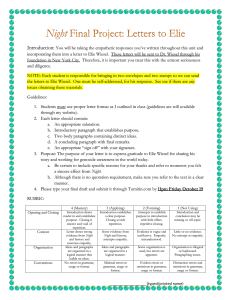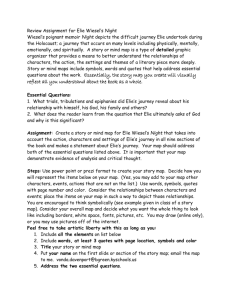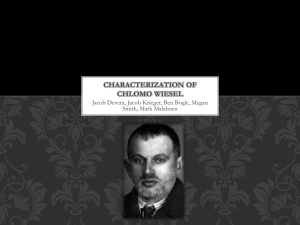Night Thematic Analysis
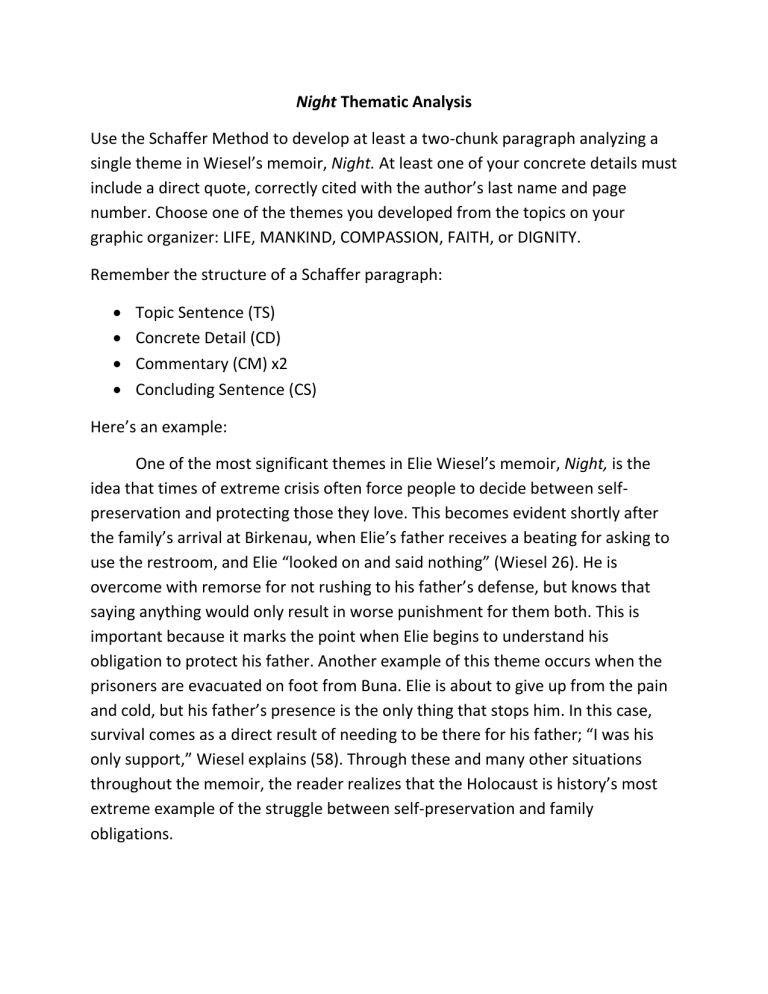
Night Thematic Analysis
Use the Schaffer Method to develop at least a two-chunk paragraph analyzing a single theme in Wiesel’s memoir, Night. At least one of your concrete details must include a direct quote, correctly cited with the author’s last name and page number. Choose one of the themes you developed from the topics on your graphic organizer: LIFE, MANKIND, COMPASSION, FAITH, or DIGNITY.
Remember the structure of a Schaffer paragraph:
Topic Sentence (TS)
Concrete Detail (CD)
Commentary (CM) x2
Concluding Sentence (CS)
Here’s an example:
One of the most significant themes in Elie Wiesel’s memoir, Night, is the idea that times of extreme crisis often force people to decide between selfpreservation and protecting those they love. This becomes evident shortly after the family’s arrival at Birkenau, when Elie’s father receives a beating for asking to use the restroom, and Elie “looked on and said nothing” (Wiesel 26). He is overcome with remorse for not rushing to his father’s defense, but knows that saying anything would only result in worse punishment for them both. This is important because it marks the point when Elie begins to understand his obligation to protect his father. Another example of this theme occurs when the prisoners are evacuated on foot from Buna. Elie is about to give up from the pain and cold, but his father’s presence is the only thing that stops him. In this case, survival comes as a direct result of needing to be there for his father; “I was his only support,” Wiesel explains (58). Through these and many other situations throughout the memoir, the reader realizes that the Holocaust is history’s most extreme example of the struggle between self-preservation and family obligations.
TS, CD, CM, CS
One of the most significant themes in
Elie Wiesel’s memoir, Night, is the idea that times of extreme crisis often force people to decide between self-preservation and protecting those they love. This becomes evident shortly after the family’s arrival at
Birkenau, when Elie’s father receives a beating for asking to use the restroom, and
Elie “looked on and said nothing” (Wiesel
26).
He is overcome with remorse for not rushing to his father’s defense, but knows that saying anything would only result in worse punishment for them both. This is important because it marks the point when
Elie begins to understand his obligation to
protect his father. Another example of this theme occurs when the prisoners are evacuated on foot from Buna.
Elie is about to give up from the pain and cold, but his father’s presence is the only thing that stops him. In this case, survival comes as a direct result of needing to be there for his father; “I was his only support,” Wiesel explains (58). Through these and many other situations throughout the memoir, the reader realizes that the Holocaust is history’s most extreme example of the struggle between self-preservation and family obligations.
